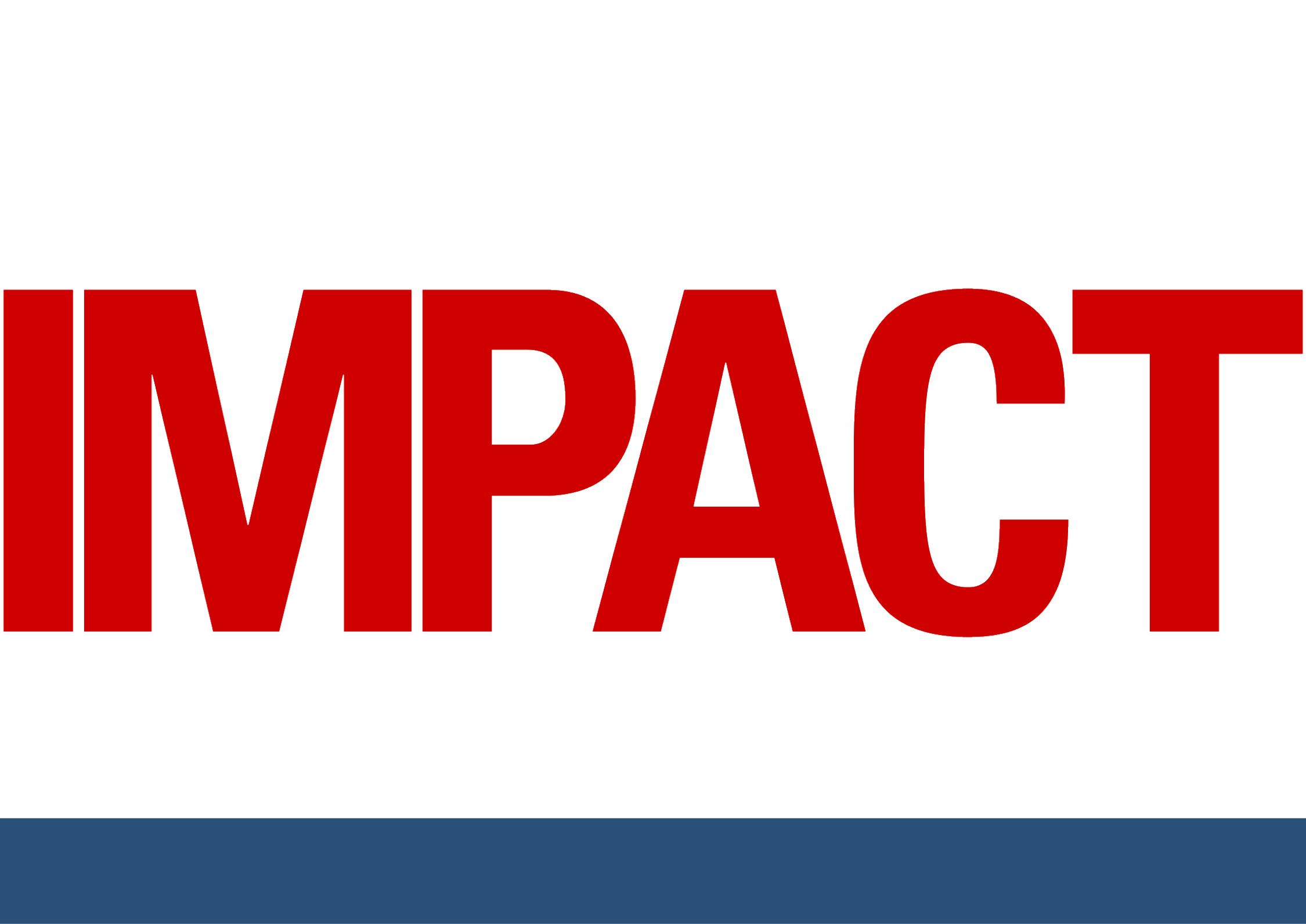Safe Delivery App
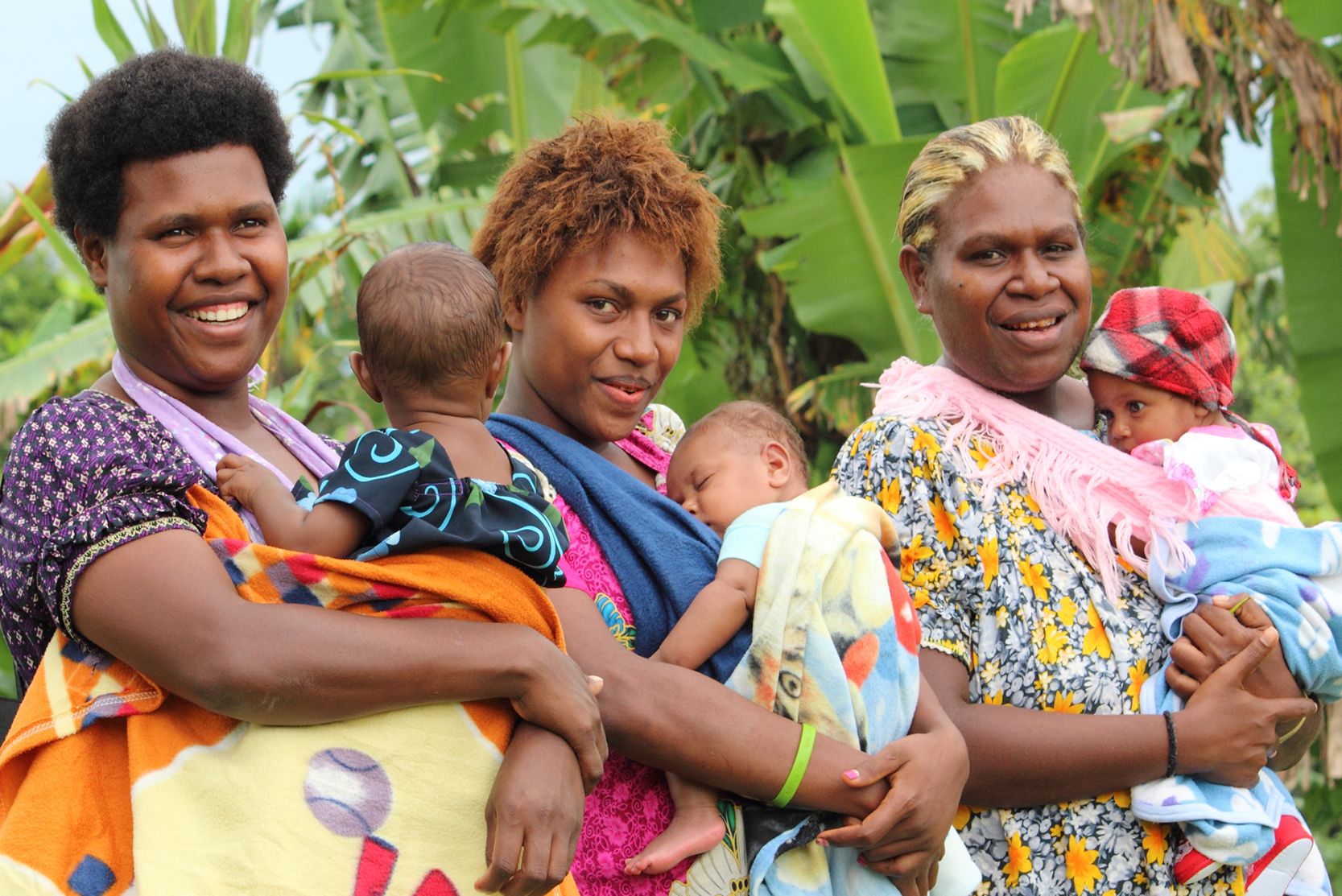
PUT LIFE-SAVING INFORMATION IN THE HANDS OF MIDWIVES AND NURSES IN PAPUA NEW GUINEA (PNG).
Health outcomes for mothers and babies in PNG are poorer than in all countries in the Pacific region. Significantly high numbers of mothers die in childbirth and many babies are stillborn or die in the first days after birth.
“We know that more than 5,000 babies don’t reach their first year of life, and we’ve seen the deaths of mothers and babies first-hand in PNG,” Professor Caroline Homer AO, Burnet’s Co-Program Director, Maternal, Child and Adolescent Health, said. “The majority of these deaths are preventable with quality maternal and newborn care, especially with access to a healthcare worker who has ongoing education and support.”
We know midwives make a difference, but they need accurate up-to-date information on hand.
Burnet Institute has been working in PNG for more than 20 years and has completed many hundreds of projects in that time. One thing we know for certain is that midwives make a significant difference.
“In 2020 we did a study with the United Nations Population Fund, World Health Organization and the International Confederation of Midwives, looking at the impact of midwives,” Professor Homer said.
“The study found that with 95 per cent midwife coverage, you would reduce numbers of maternal deaths in a low- to middle-income country by 60 per cent. If you only had 25 per cent coverage, it’s still going to be about a 50 per cent reduction in maternal deaths, newborn deaths, and stillbirths.”
Ensuring midwife coverage is one thing, but in PNG, giving midwives and other healthcare workers access to ongoing education, especially up-to-date and current information, is another. Understaffing in health facilities can also mean that professional support is not available, and staff often work in isolation without on-the-spot guidance.
ADAPTING THE SAFE DELIVERY APP FOR USE IN PNG
The app is currently used in more than 40 countries and has been shown in countries such as Ethiopia to improve health outcomes for mothers and babies. It has not been used widely in the Pacific region, but there is huge interest and enthusiasm in using it in PNG with the support of the United Nations Population Fund.
There is now a real need to adapt it for PNG. Your donation today will enable Burnet to undertake a study with healthcare workers to adapt the Safe Delivery App specifically for use across PNG.
SO, WHAT IS THE SAFE DELIVERY APP AND HOW CAN IT HELP?
The Safe Delivery App, developed by Maternity Foundation (Denmark), is a smartphone application that provides skilled birth attendants with direct and instant access to evidence-based, up-to-date, clinical guidelines on Basic Emergency Obstetric and Newborn Care.
The app has easy-to-understand animated videos, action cards and drug lists, and is designed to be used as both a training resource for professional development and as a reference in emergency situations. It includes critical information such as how to resuscitate a newborn, how to handle a breach birth situation, and information about essential obstetric drugs and equipment.
In 2020, the app was updated to include a module on COVID-19, addressing transmission in pregnant women, care during labour and birth, and infection prevention and control.
“You might think that using mobile phone technology in PNG could be problematic but that's not the case. Nearly everyone in PNG has a mobile phone. And if they don't, we can provide them with one.”
So, using the technology is not a hurdle, but adapting the app for in-country use is absolutely critical to making it a useful resource that can be more widely used.
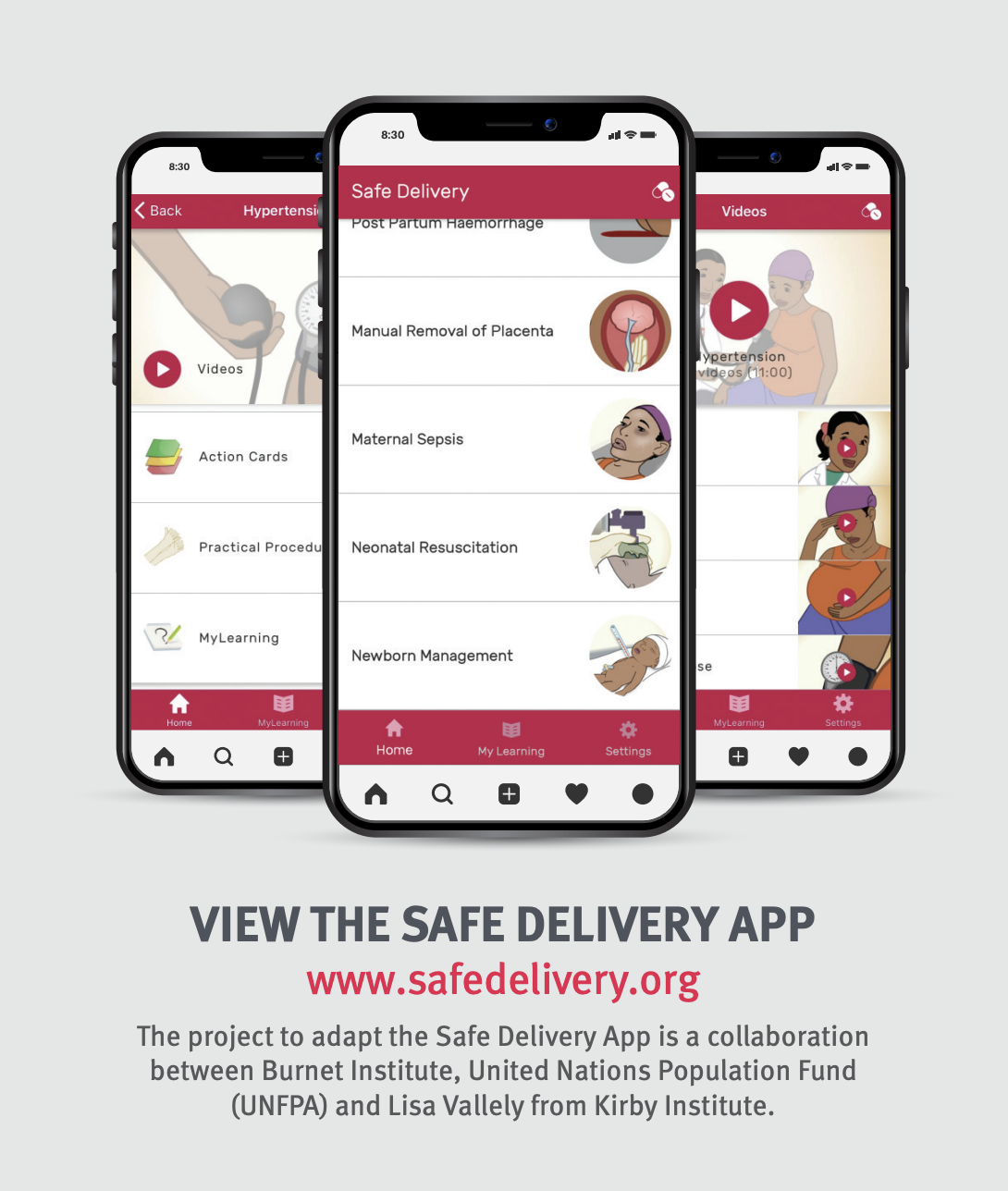
The project to adapt the Safe Delivery App is a collaboration between Burnet Institute, United Nations Population Fund (UNFPA) and Lisa Vallely from Kirby Institute.
The project to adapt the Safe Delivery App is a collaboration between Burnet Institute, United Nations Population Fund (UNFPA) and Lisa Vallely from Kirby Institute.
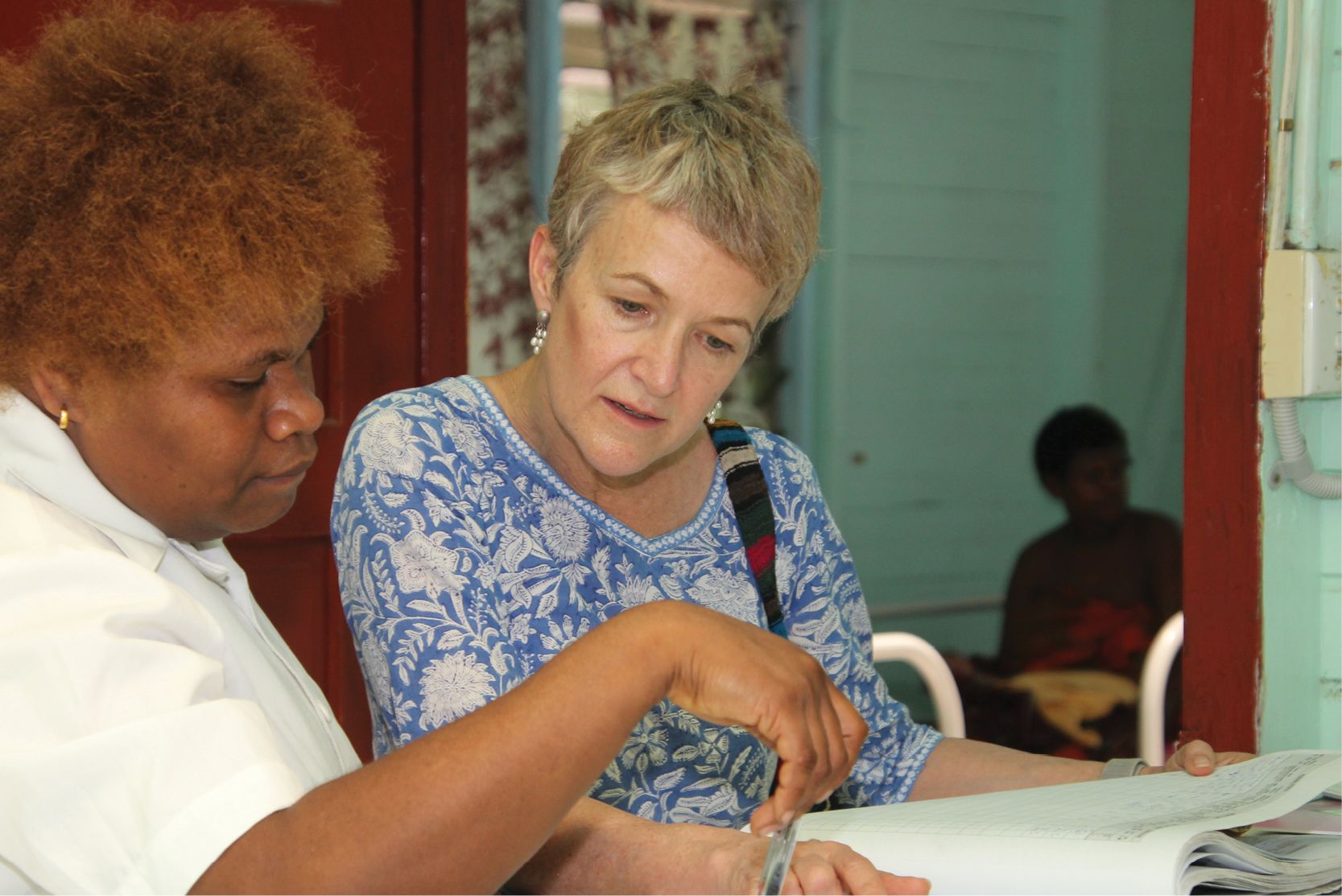
Sister Jennifer Bata, Nursing Officer-in-Charge at a health centre, and Professor Caroline Homer looking through the birth register in East New Britain, PNG.
Sister Jennifer Bata, Nursing Officer-in-Charge at a health centre, and Professor Caroline Homer looking through the birth register in East New Britain, PNG.
The Burnet-led study will:
- Review the clinical content and adapt it based on the current PNG Obstetrics and Gynaecology Guidelines.
- Revise content based on advice with key expert colleagues from the PNG Obstetrics and Gynaecology Society, the PNG Midwifery Society and the PNG Paediatric Society and the National Department of Health.
- Translate audio recordings into Tok Pisin (the local language) and ensure the images and videos have PNG faces and stories.
- Publish the PNG-specific app on Google Play and App store.
The Burnet-led project will provide smartphones with the adapted Safe Delivery App uploaded to a test group of midwives and other healthcare professionals.
We will then monitor use of the app for three months, determining how the app was used, which modules were most accessed, and a focus group exercise at the end of the process will gather in-person experiences and suggestions for improvements, with a broader rollout to follow.
Help save the lives of mothers and babies in PNG | Donate today
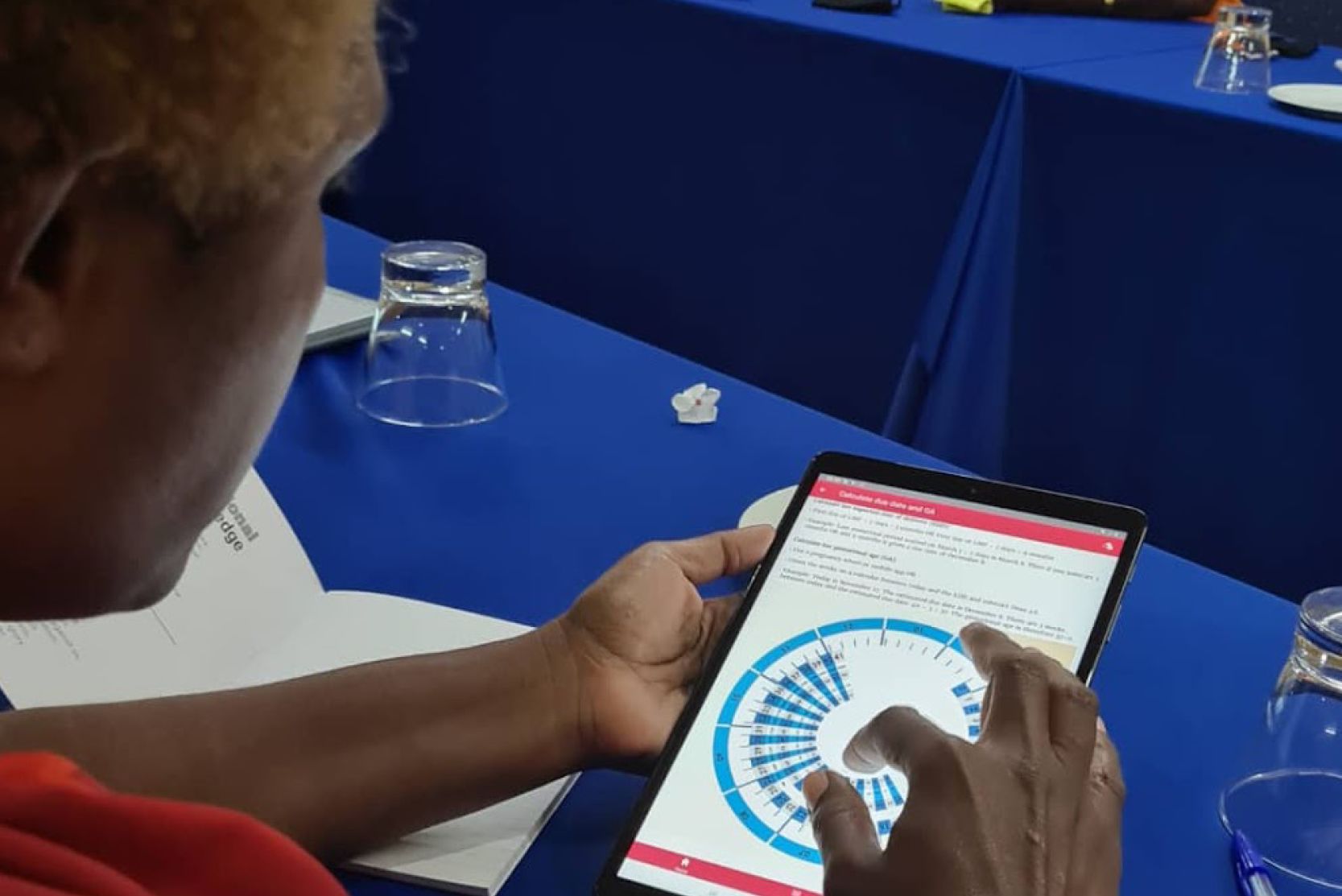
“I think about all those midwives out there in really tough circumstances, frightened for themselves with COVID-19 and for their families, but also really trying to do the best for the women who come to them. I think putting the Safe Delivery App in their hands is one really important thing we can do to support them, grow capacity, and save the lives of mums and babies in PNG.”
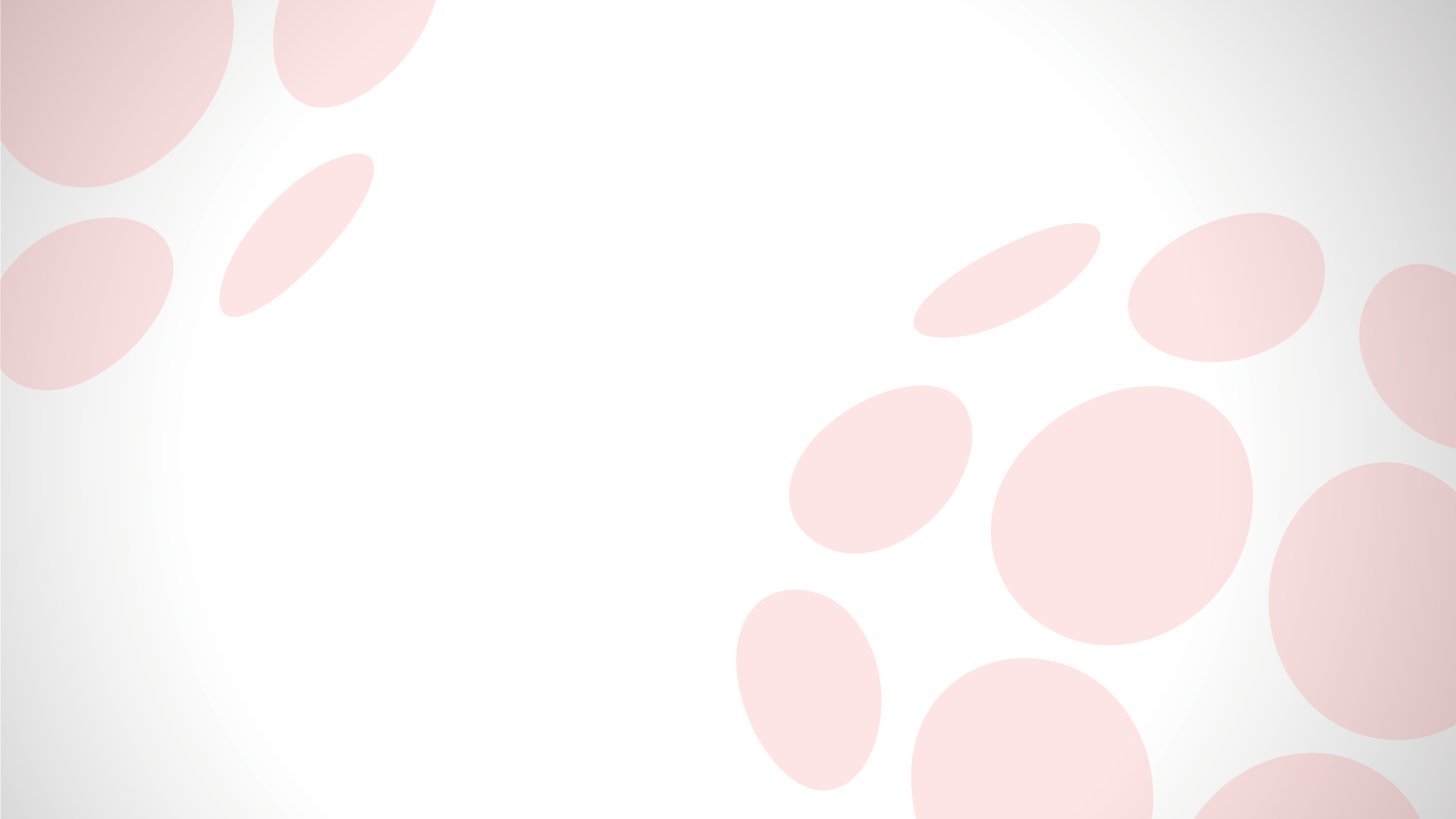
Make an Impact | Donate Today
Please donate today. Your donation will enable us to focus on safe birthing in the time of COVID-19 to improve health outcomes for mothers and babies in Papua New Guinea.
Contact Us
If you would like to discuss this edition with our team please contact Tracy Parish.
E: communications@burnet.edu.au
T: +61 3 9282 2111
Where possible people who appear in images included in this publication were photographed with their permission. There is no implication that these people have any infectious diseases.
Stay across the latest from Burnet Institute
Subscribe to IMPACT magazine today
Discover the IMPACT of Burnet’s medical research breakthroughs and public health projects in the Institute’s bi-annual magazine.
